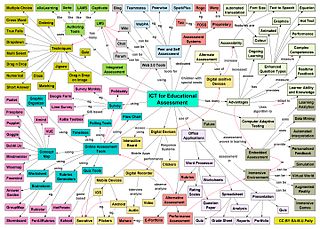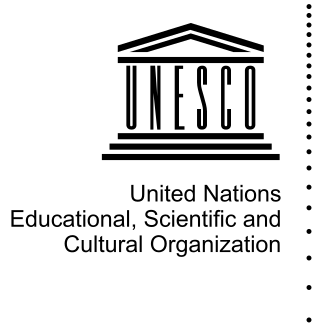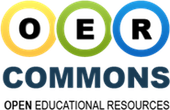Related Research Articles

Information and communications technology (ICT) is an extensional term for information technology (IT) that stresses the role of unified communications and the integration of telecommunications and computers, as well as necessary enterprise software, middleware, storage and audiovisual, that enable users to access, store, transmit, understand and manipulate information.

Open educational resources (OER) are teaching, learning, and research materials intentionally created and licensed to be free for the end user to own, share, and in most cases, modify. The term "OER" describes publicly accessible materials and resources for any user to use, re-mix, improve, and redistribute under some licenses. These are designed to reduce accessibility barriers by implementing best practices in teaching and to be adapted for local unique contexts.

The Ministry of Education is a ministry of the Government of Singapore responsible for the formulation and implementation of policies related to the education in Singapore.
Open learning is an innovative movement in education that emerged in the 1970s and evolved into fields of practice and study. The term refers generally to activities that either enhance learning opportunities within formal education systems or broaden learning opportunities beyond formal education systems. Open learning involves but is not limited to: classroom teaching methods, approaches to interactive learning, formats in work-related education and training, the cultures and ecologies of learning communities, and the development and use of open educational resources. While there is no agreed-upon, comprehensive definition of open learning, central focus is commonly placed on the "needs of the learner as perceived by the learner." Case studies illustrate open learning as an innovation both within and across academic disciplines, professions, social sectors and national boundaries, and in business and industry, higher education institutions, collaborative initiatives between institutions, and schooling for young learners.

The International Programme for the Development of Communication is a United Nations Educational, Scientific and Cultural Organization (UNESCO) programme aimed at strengthening the development of mass media in developing countries.

African Journals OnLine (AJOL) is a South African non-profit organisation, which is in the headquarters of Grahamstown, it is dedicated to improve the online visibility and access to the published scholarly research of African-based academics. By using the internet as a gateway, AJOL aims to enhance conditions for African learning as well as African development.

Open education is an educational movement founded on openness, with connections to other educational movements such as critical pedagogy, and with an educational stance which favours widening participation and inclusiveness in society. Open education broadens access to the learning and training traditionally offered through formal education systems and is typically offered through online and distance education. The qualifier "open" refers to the elimination of barriers that can preclude both opportunities and recognition for participation in institution-based learning. One aspect of openness or "opening up" education is the development and adoption of open educational resources in support of open educational practices.
Media development involves capacity building for institutions or individuals related to freedom of expression, pluralism and diversity of media, as well as transparency of media ownership. Media development plays a role in democracy and effective democratic discourse through supporting free and independent media.
The UNESCO Institute for Statistics (UIS) is the statistical office of UNESCO and is the UN depository for cross-nationally comparable statistics on education, science and technology, culture, and communication.

The Institute for the Study of Knowledge Management in Education (ISKME), is a 501(c)(3) non-profit organization founded in 2002. Located in Half Moon Bay, California, its mission is to make learning and knowledge sharing participatory, equitable, and open.

OER Commons is a freely accessible online library that allows teachers and others to search and discover open educational resources (OER) and other freely available instructional materials.
Open educational resources (OER) are learning materials that reside in the public domain or have been released under an intellectual property license that permits their free use and re-purposing by others. OER policies are adopted by governments, institutions or organisations in support of the creation and use of open content, specifically open educational resources (OER), and related open educational practices.
Online credentials for learning are digital credentials that are offered in place of traditional paper credentials for a skill or educational achievement. They are directly linked to the accelerated development of internet communication technologies, the development of digital badges, electronic passports and massive open online courses (MOOCs).

Climate change education (CCE) is education that aims to address and develop effective responses to climate change. It helps learners understand the causes and consequences of climate change, prepares them to live with the impacts of climate change and empowers learners to take appropriate actions to adopt more sustainable lifestyles. Climate change and climate change education are global challenges that can be anchored in the curriculum in order to provide local learning and widen up mindset shits on how climate change can be mitigated. In such as case CCE is more than climate change literacy but understanding ways of dealing with climate
Open Educational Practices in Australia refers to the development, implementation and use of Open educational resources (OER), open access, open learning design, open policies, and Massive Open Online Courses (MOOCs) to open up education in Australia.
Open educational resources in Canada are the various initiatives related to open education, open educational resources (OER), open pedagogies (OEP), open educational practices (OEP), and open scholarship that are established nationally and provincially across Canadian K-12 and higher education sectors, and where Canadian based inititatives extend to international collaborations.
Educational technology in sub-Saharan Africa refers to the promotion, development and use of information and communication technologies (ICT), m-learning, media, and other technological tools to improve aspects of education in sub-Saharan Africa. Since the 1960s, various information and communication technologies have aroused strong interest in sub-Saharan Africa as a way of increasing access to education, and enhancing its quality and fairness.
Monitoring Education for Sustainable Development (ESD) refers to measuring progress in ESD learning compared to policy commitments, provision, institutional support, resources and others. Monitoring and evaluation (M&E) of Education for Sustainable Development is widely discussed in literature on ESD, including debates regarding methodology and strategies for interpreting the data.

Sustainable Development Goal 4 is about quality education and is among the 17 Sustainable Development Goals established by the United Nations in September 2015. The full title of SDG 4 is "Ensure inclusive and equitable quality education and promote lifelong learning opportunities for all".
References
- ↑ "UNESCO invites development stakeholders to share training resources on the Web". UNESCO. 7 March 2007. Retrieved 29 August 2013.
- ↑ "The Open Training Platform continues to expand!". UNESCO. 17 December 2007. Retrieved 29 August 2013.